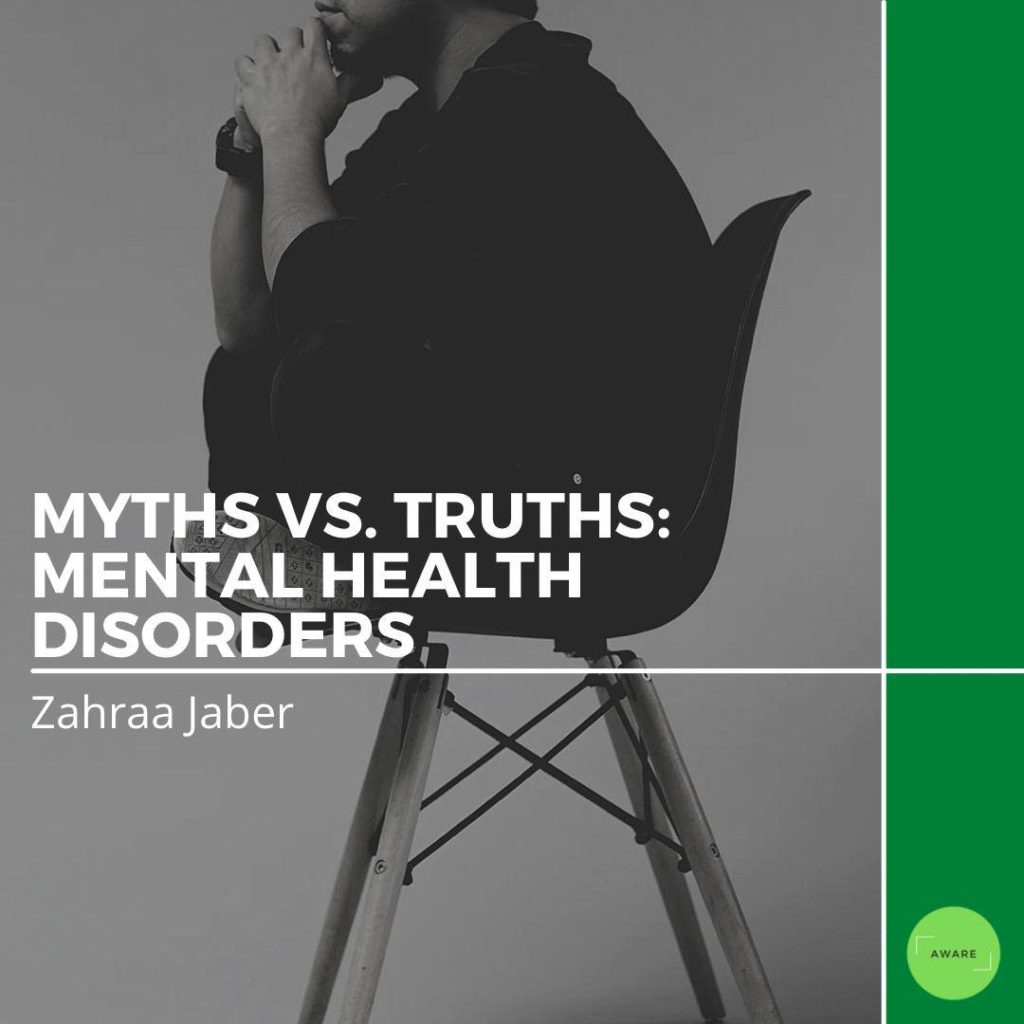Mental health has always been a complex topic of discussion. Therefore, as a result, a stigma surrounding mental health has been created. Consequently, people often fear discussing this topic due to the various misconceptions and stereotypes surrounding it. It is extremely paramount to learn the facts in order to eradicate the discrimination towards mental disorders and to begin treating people suffering from mental illnesses with respect.
“Mental illnesses are not actually real. People are just faking it.”
Mental illness is real. For example, those who suffer from depression tend to have a chemical imbalance in the brain, which, in turn, generates symptoms such as exhaustion, mood swings, and lack of stimulus and motivation. These are things that prominently impact quality of life. Just because you cannot physically see a mental illness, it does not mean that it is any less agonizing or devastating than a broken arm. We must understand that mental illnesses are just as real as any other physical illness.
“People with mental illnesses are crazy and tend to be violent and erratic.”
To put it simply and bluntly, suffering from a mental disorder in no way means a person is “crazy”. It just means that the person is more vulnerable and struggles with challenging symptoms. Also, the best predictor of future violence is a history of violence in their life. With that being said, people with the most common mental disorders, such as depression, anxiety, bipolar disorder, and schizophrenia actually have lower rates of violence than the majority of people. In fact, people with mental illnesses are more susceptible to violence than the average population.
“Children do not suffer from mental health problems.”
Unfortunately, many young children may showcase early signs of a mental disorder but are often ignored due to this common misconception. Mental health disorders that children suffer from are usually a product of the interaction of biological, psychological, social, and, sometimes, even genetic aspects. So, the children that are typically labeled as troubling or attention-seeking may just be experiencing behavioral problems that are symptoms of mental illnesses.
“Psychiatric medications are bad and do not actually help.”
A common stereotype that people believe is the fact that psychiatric medications are simply “happy pills” or just drugs that people with mental illnesses take just to avoid truly dealing with their problems. This is not accurate because, just like with any other detrimental medical condition, mental illnesses are still illnesses. Therefore, for many that suffer from mental disorders, medication is necessary – just like it would be necessary for a diabetic to take insulin. In some cases, medication is absolutely indispensable and needed for survival in order to ease damaging symptoms.
Mental illnesses are remediable health conditions that are tremendously common in the world today. They may affect anyone, regardless of their gender, age, or race. It is imperative that we avert societal constructs that frame people as “crazy” for having an illness that is out of their hands and beyond their control.
